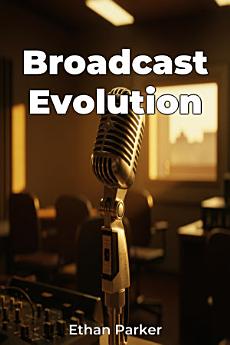Broadcast Evolution
About this ebook
The book progresses chronologically, starting with radio's origins and the establishment of the first broadcasting networks. It then moves through the golden age of radio drama and music, analyzing its cultural impact. Finally, the book addresses the challenges and opportunities presented by the digital age, including internet radio and podcasting. This historical narrative is supported by primary and secondary sources, offering a nuanced account of radio's evolution and its interdisciplinary connections with communications theory and cultural studies.
What sets Broadcast Evolution apart is its focus on the human element behind technological innovation, highlighting the engineers, entrepreneurs, and artists who shaped the radio landscape. This approach brings the history of radio to life, making it accessible to students, researchers, and anyone interested in technology history, media studies, or the cultural impact of radio broadcasting.








